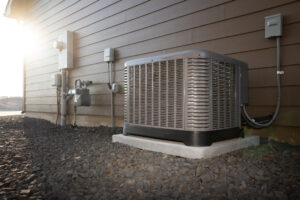Deciding whether to repair or replace your air conditioner can be challenging, especially when dealing with unexpected breakdowns. While repairs may seem like the quicker, cheaper option, there are situations where replacing the unit is more cost-effective in the long run. Understanding the key factors involved can help you make an informed decision that ensures comfort, efficiency, and value for your investment.
The Age of Your Air Conditioner
One of the most critical factors to consider is the age of your air conditioning unit. Most air conditioners have a lifespan of 10 to 15 years, depending on usage, maintenance, and the quality of the system. If your unit is over 10 years old and frequently requires repairs, it may be time to consider a replacement. Older systems are less energy-efficient, leading to higher utility bills and increasing the cost of operation over time.
Frequency and Cost of Repairs
Evaluate how often your air conditioner needs repairs and the costs involved. If you find yourself calling for service multiple times a year, those repair costs can quickly add up. A good rule of thumb is the “50% rule”: if the cost of repairing your AC is more than 50% of the cost of a new unit, replacement is typically the better option. Additionally, if major components like the compressor or condenser fail, the expense may not be worth it compared to investing in a new system.
Energy Efficiency and Utility Bills
Energy efficiency is another crucial factor. Older air conditioners often lack the advanced technology and higher SEER (Seasonal Energy Efficiency Ratio) ratings of modern systems. A lower SEER rating means higher energy consumption and increased utility bills. Replacing an outdated unit with an energy-efficient model can significantly reduce your monthly costs, offsetting the initial investment over time.
Comfort and Performance Issues
If your air conditioner struggles to maintain consistent temperatures, produces uneven cooling, or has poor airflow, these performance issues can affect your comfort and indicate underlying problems. While some issues can be resolved with repairs, persistent performance problems may suggest that the system is no longer capable of meeting your cooling needs effectively. A new unit can provide better climate control, improved air quality, and quieter operation.
Environmental Impact
Older air conditioners often use refrigerants like R-22, which have been phased out due to environmental concerns. If your unit relies on R-22, repairs can be more expensive because the refrigerant is no longer produced, making it scarce and costly. Upgrading to a new system that uses eco-friendly refrigerants reduces your carbon footprint and aligns with current environmental regulations.
Available Incentives and Rebates
When considering a replacement, check for available incentives, tax credits, or manufacturer rebates that can help offset the cost of a new energy-efficient system. Many programs encourage homeowners to upgrade to environmentally friendly HVAC systems, making it more affordable to invest in a new unit.
When Repair Might Be the Right Choice
While replacement is often the better long-term solution for aging or inefficient units, there are situations where repairing your AC makes sense. If your unit is relatively new, under warranty, and has a minor issue that can be fixed affordably, repair is likely the most practical option. Regular maintenance can also extend the lifespan of your system, reducing the need for major repairs or premature replacement.
Consult with HVAC Professionals
Deciding between repairing or replacing your air conditioner isn’t always straightforward. Consulting with a licensed HVAC professional can provide valuable insights. They can assess your system’s condition, recommend the most cost-effective solution, and ensure your home stays cool and comfortable year-round.
If you’re facing AC issues and unsure whether to repair or replace your unit, contact Superb Heating & Air at (708) 890-8285. Our experienced technicians can help you make the best choice based on your specific needs and budget.

